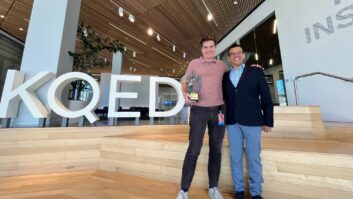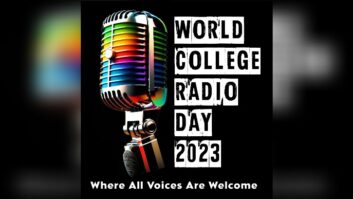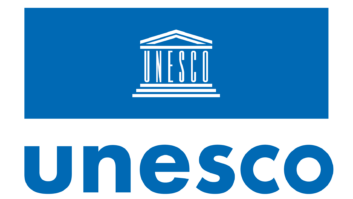
David, Pittman and Mason Broadcast bigwigs Bob Pittman and Dan Mason traded war stories and management philosophies in an informal, well-attended Thursday session here at the Radio Show in Indianapolis.
Pittman is chairman/CEO of Clear Channel, the U.S. radio industry’s largest company and owner of iHeartRadio among other media assets. Mason is president/CEO of CBS Radio, one of the largest big-market station owners and industry revenue generators.
Both started in radio — Pittman recalled that “I needed a job to pay for flying lessons,” and Mason joked that, as a 12-year-old, “I was the biggest contest pig who ever lived” — though their careers have taken much different paths since. Moderator John David of the NAB brought chuckles from the audience by playing on-air excerpts of Pittman, Mason and himself from years ago, accompanied by youthful photographs.
Both executives spoke about the continuing power of the medium while also emphasizing that content trumps technology. In radio, “we’re content, not an appliance,” Mason said. He noted the industry’s expansion to other platforms. “We have to be passionate about content and where we put it. It might not be on radio all the time.”
He and Pittman kept returning to that theme. Mason quoted a colleague telling him, “People will not listen to bad content on a good device.” Pittman described Clear Channel and CBS Radio as “companies that put talent first” and said, “There’s no franchise in the world better than a radio station. … We [also] need to express that through new devices.”
The Clear Channel executive brought applause when he said the industry tends to hurt itself through a lack of collective marketing. “In radio, we sometimes get so down in the weeds against each other that we’re running down our whole category.” By contrast, he said, TV and Internet companies seem to understand better that money spent in a sector, even with a competitor, helps to raise all boats in that sector.
Pittman spoke ardently about the role radio plays in consumers’ lives, and asked attendees to think about radio as a friend sitting in the car passenger seat. “TV is a hobby, radio is a companion,” he said; and as consumers our companions have more influence over our thoughts and opinions. “Radio,” he said, “curates for the tribe.”
And Pittman summarized the business of commercial broadcasters this way: “What we’re trying to do is rent our consumer relationships to an unaffiliated third party to our mutual benefit.”
The leaders offered several pithy comments during the conversation. John David asked them if they ever arrived unannounced at their stations; Mason said he does not, citing the experience of being “scarred” by unannounced FCC visits. He added that his first stop at a CBS station is often the engineering shop, where he can get a sense of how well run an operation is.
John David jokingly encouraged Pittman and Mason to put a scare into air talent by showing up unannounced, sticking their head into the studio and telling the jock, “Come see me after your airshift.”











